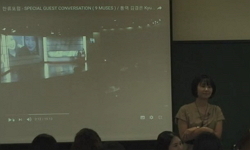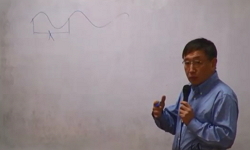To find a solution with regard to the conflict of the battle of the forms is not easy. This is because the commercial practice of sending offers and acceptances that contain general conditions is complicated and its outcomes are contradictory. The fir...
http://chineseinput.net/에서 pinyin(병음)방식으로 중국어를 변환할 수 있습니다.
변환된 중국어를 복사하여 사용하시면 됩니다.
- 中文 을 입력하시려면 zhongwen을 입력하시고 space를누르시면됩니다.
- 北京 을 입력하시려면 beijing을 입력하시고 space를 누르시면 됩니다.
https://www.riss.kr/link?id=A104824393
-
저자
가정준 (한국외국어대학교)
- 발행기관
- 학술지명
- 권호사항
-
발행연도
2013
-
작성언어
Korean
-
주제어
충돌배제이론 ; 최후발포이론 ; 숨은 불합의 ; 의식적 불합의 ; 준거법 ; 서식전쟁 ; 의사표시의 해석 ; 관할권 ; Knock-Out Rule ; Last-Shot Doctrine ; Hidden Lack of Agreement ; Overt Lack of Agreement ; Applicable Law ; Battle of Forms ; Interpretation ; Jurisdiction
-
등재정보
KCI등재
-
자료형태
학술저널
- 발행기관 URL
-
수록면
209-232(24쪽)
-
KCI 피인용횟수
7
- 제공처
-
0
상세조회 -
0
다운로드
부가정보
다국어 초록 (Multilingual Abstract)
This is because the commercial practice of sending offers and acceptances that contain general conditions is complicated and its outcomes are contradictory. The first question with regard to the conflict of the battle is whether contract is made and valid despite no all consent with all of contractual terms. The second question follows what the terms of the contract are if the contract is valid. The courts for the answer to the first question is likely affirmative to the validity of contract. However, the answer to the second question may not be affirmative.
There are three suggestions to solve the conflict of the battle of the forms. First, when ‘last-shot doctrine’ is applicable, the last person to send his form is considered to control the terms of the contract and therefore the last person wins the battle.
Second, when ‘knock-out rule’ is applicable, clauses contained in the forms which are contradictory are excluded and therefore excluded clauses are substituted by the applicable law, usage, or practices. Third, since expressly no provision with regard to the conflict of the battle of the forms is provided in CISG, it is supposed to resolved with the principle by applying general principles upon which the Convention is based. I would like to suggest some tools how to interpret parties’ intents in forms based on traditional contractual views.
These suggestions apply situations where parties’ intents for agreement may not be clear. I have suggested that parties’ intents may be classified into overt lack of agreement and hidden lack of agreement. It is reasonable to apply ‘last-shot doctrine’ to overt lack of agreement from the conflict of forms. If hidden lack of agreement can be found, ‘knock-out rule’ is applicable rather than ‘last-shot doctrine’. This distinction is based on CISG article 8 and traditional contractual views. I believe that the situations of the battle of forms are likely to be hidden lack of agreement rather than overt lack of agreement. Hidden lack of agreement is like to be where parties consider to have agreed with all points to comprise a contract, but in fact they have not. In this situation, ‘knock-out rule’ should apply.
To find a solution with regard to the conflict of the battle of the forms is not easy.
This is because the commercial practice of sending offers and acceptances that contain general conditions is complicated and its outcomes are contradictory. The first question with regard to the conflict of the battle is whether contract is made and valid despite no all consent with all of contractual terms. The second question follows what the terms of the contract are if the contract is valid. The courts for the answer to the first question is likely affirmative to the validity of contract. However, the answer to the second question may not be affirmative.
There are three suggestions to solve the conflict of the battle of the forms. First, when ‘last-shot doctrine’ is applicable, the last person to send his form is considered to control the terms of the contract and therefore the last person wins the battle.
Second, when ‘knock-out rule’ is applicable, clauses contained in the forms which are contradictory are excluded and therefore excluded clauses are substituted by the applicable law, usage, or practices. Third, since expressly no provision with regard to the conflict of the battle of the forms is provided in CISG, it is supposed to resolved with the principle by applying general principles upon which the Convention is based. I would like to suggest some tools how to interpret parties’ intents in forms based on traditional contractual views.
These suggestions apply situations where parties’ intents for agreement may not be clear. I have suggested that parties’ intents may be classified into overt lack of agreement and hidden lack of agreement. It is reasonable to apply ‘last-shot doctrine’ to overt lack of agreement from the conflict of forms. If hidden lack of agreement can be found, ‘knock-out rule’ is applicable rather than ‘last-shot doctrine’. This distinction is based on CISG article 8 and traditional contractual views. I believe that the situations of the battle of forms are likely to be hidden lack of agreement rather than overt lack of agreement. Hidden lack of agreement is like to be where parties consider to have agreed with all points to comprise a contract, but in fact they have not. In this situation, ‘knock-out rule’ should apply.
참고문헌 (Reference)
1 김형배, "민법학강의" 신조사 2009
2 "민법주해, 제XII권 채권(5)" 박영사 2006
3 "대법원 2001. 3. 23. 선고 2000다51650 판결"
4 석광현, "국제물품매매계약의 법리" 박영사 2010
5 송경석, "국제물품매매계약에 있어서 서식전쟁에 관한 법리연구" 한국관세학회 6 (6): 427-442, 2005
6 김대정, "계약법(상)" 도서출판 피데스 2007
7 양창수, "계약법" 博英社 2010
8 Stewart Macaulay, "William Whitford, and Marc Galanter" Law in Action 1995
9 Peter Schlechtriem, "UN Law on International Sales" Springer 2009
10 DiMatteo, "The Interpretive Turn in International Sales Law : An Analysis of Fifteen Years of “CISG” Jurisprudence" 24 : 299-, 2004
1 김형배, "민법학강의" 신조사 2009
2 "민법주해, 제XII권 채권(5)" 박영사 2006
3 "대법원 2001. 3. 23. 선고 2000다51650 판결"
4 석광현, "국제물품매매계약의 법리" 박영사 2010
5 송경석, "국제물품매매계약에 있어서 서식전쟁에 관한 법리연구" 한국관세학회 6 (6): 427-442, 2005
6 김대정, "계약법(상)" 도서출판 피데스 2007
7 양창수, "계약법" 博英社 2010
8 Stewart Macaulay, "William Whitford, and Marc Galanter" Law in Action 1995
9 Peter Schlechtriem, "UN Law on International Sales" Springer 2009
10 DiMatteo, "The Interpretive Turn in International Sales Law : An Analysis of Fifteen Years of “CISG” Jurisprudence" 24 : 299-, 2004
11 John E. Murray, "The Chaos of the ‘Battle of the Forms’ : Solutions" 39 : 1307-, 1986
12 Giesela Rühl, "The Battle of the Forms : Comparative and Economic Observations" 24 : 189-, 2003
13 "Supermicro Computer, Inc. v. Digitechnic, S.A., 145 F. Supp. 2d 1147, 1151 (N.D. Cal. 2001)"
14 "Netherlands 29 May 2007 Gerechtshof [Appellate Court]’s-Hertogenbosch"
15 "Magellan International Corporation v. Salzgitter Handel GmbH 76 F. Supp. 2d. 919, 925"
16 Ulrich Magnus, "Last Shot vs. Knock Out-Still Battle over the Battle of Forms Under the “CISG” in Commercial Law Challenges in the 21st Century" Jan Ramberg & Jacob Ziegel 2007
17 Charles Sukurs, "Harmonizing the Battle of the Forms: A Comparison of the United States, Canada, and the United Nations Convention on Contracts for the International Sale of Goods" 34 : 1481-, 2002
18 "Hanwha Corporation v. Cedar Petrochemicals, Inc, 760 F. Supp. 2d. 426 (S.D.N.Y. 2011)"
19 "HOF‘s-Hertogenbosch, C051069/HE"
20 "CSS Antenna, Inc., v. Amphenol-Tuchel Electronics, GMBH 764 F.Supp. 2d 745, 754 (D. Md., 2011)"
21 김진우, "CISG에서의 약관의 편입통제" 법학연구소 46 (46): 91-122, 2011
22 김진우, "CISG에서의 약관의 충돌문제" 국제거래법학회 20 (20): 167-194, 2011
23 "Bundesgerichtshof 9. Januar 2002 [VIII ZR 304/00]"
24 Perales Viscasillas, "Battle of the Forms and the Burden of Proof: An Analysis of BGH 9 January 2002" 6 : 217-, 2002
25 Andrea Fejös, "Battle of Forms under the Convention on Contracts for the International Sale of Goods (“CISG”): A Uniform Solution" 11 : 113-, 2007
26 "An International Approach to the Interpretation of the United Nations Convention on Contracts for the International Sales of Goods" John Felemegas ed., Cambridge University Press 1980
27 Kevin C. Stemp, "A Comparative Analysis of The “Battle of the Forms”" 15 : 243-, 2005
28 Ved P. Nanda, "2 Litigation of International Disputes in U.S. Courts § 12:20, Battle of the forms restrained"
동일학술지(권/호) 다른 논문
-
- 국제거래법학회
- 정홍식
- 2013
- KCI등재
-
- 국제거래법학회
- 허해관
- 2013
- KCI등재
-
The Engineer’s Role in Contract Management
- 국제거래법학회
- 토니 다이먼드
- 2013
- KCI등재
-
- 국제거래법학회
- 김세연
- 2013
- KCI등재
분석정보
인용정보 인용지수 설명보기
학술지 이력
| 연월일 | 이력구분 | 이력상세 | 등재구분 |
|---|---|---|---|
| 2028 | 평가예정 | 재인증평가 신청대상 (재인증) | |
| 2022-01-01 | 평가 | 등재학술지 유지 (재인증) |  |
| 2019-01-01 | 평가 | 등재학술지 유지 (계속평가) |  |
| 2016-01-01 | 평가 | 등재학술지 선정 (계속평가) |  |
| 2015-12-01 | 평가 | 등재후보로 하락 (기타) |  |
| 2011-01-01 | 평가 | 등재학술지 유지 (등재유지) |  |
| 2008-01-01 | 평가 | 등재학술지 선정 (등재후보2차) |  |
| 2007-04-10 | 학회명변경 | 영문명 : Korean Forum on International Trade and Business Law -> Korea International Trade Law Association |  |
| 2007-01-01 | 평가 | 등재후보 1차 PASS (등재후보1차) |  |
| 2005-01-01 | 평가 | 등재후보학술지 선정 (신규평가) |  |
학술지 인용정보
| 기준연도 | WOS-KCI 통합IF(2년) | KCIF(2년) | KCIF(3년) |
|---|---|---|---|
| 2016 | 1.07 | 1.07 | 1.18 |
| KCIF(4년) | KCIF(5년) | 중심성지수(3년) | 즉시성지수 |
| 0.99 | 0.88 | 1.53 | 0.07 |




 KCI
KCI






